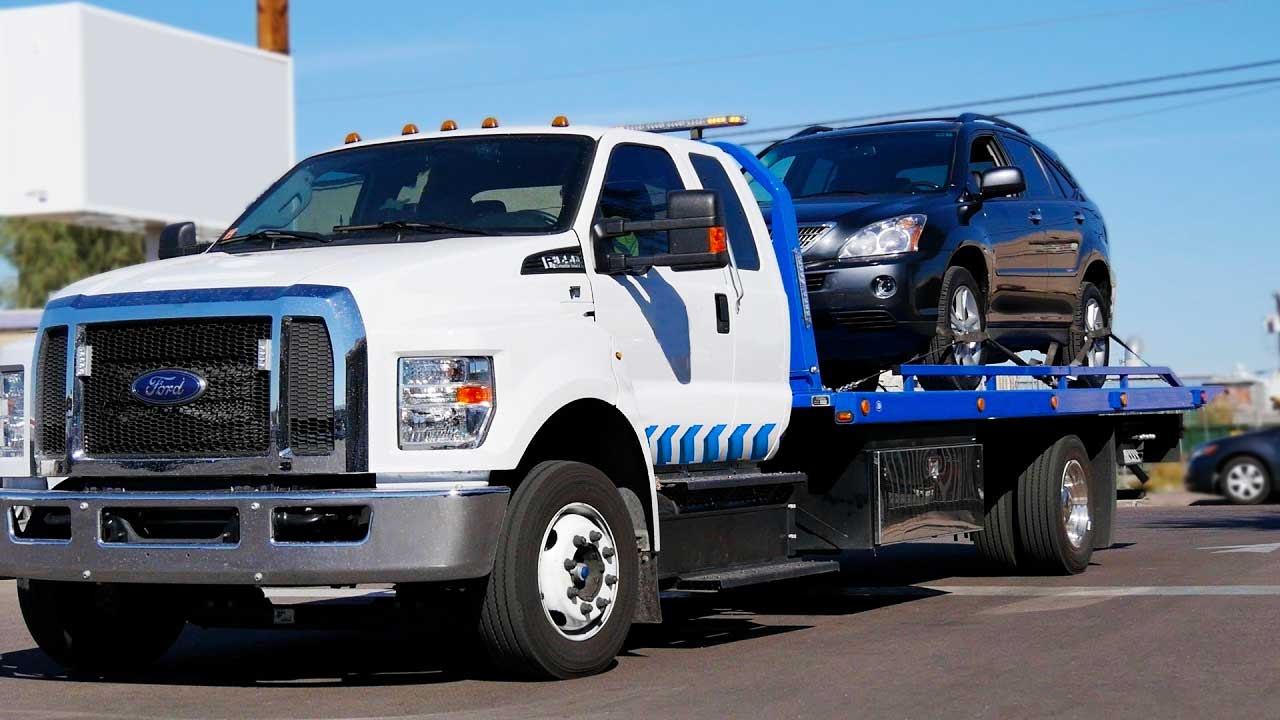Top 10 Steps to Start a Towing Business
Kickstart your entrepreneurial journey with this top 10 guide to launching a successful towing business today.

Learning how to start a towing business can launch you on a path to a lucrative entrepreneurial journey. Towing services are always in demand, whether for stranded vehicles, post-accident recovery, or transporting vehicles for relocations. This guide will walk you through the top 10 steps to setting up your towing operation, ensuring you're well-equipped to tackle the challenges and opportunities of this industry.
How to Start a Towing Business: A Comprehensive Guide
Before diving into the towing business world, it's essential to understand the intricacies involved in setting up and running a successful towing service. From obtaining the right licenses and insurance to choosing the appropriate tow trucks and marketing your services effectively, there's a lot to consider. But fear not, this guide is designed to navigate you through these steps with ease, steering you towards your towing business goals.
List of Top Choices
- Understand the Market
- Create a Business Plan
- Secure the Necessary Licenses and Permits
- Obtain Insurance
- Purchase or Lease Tow Trucks
- Invest in the Right Equipment
- Set Up Your Business Location
- Hire Experienced Employees
- Market Your Towing Business
- Maintain High-Quality Service
Understand the Market

- Research local demand for towing services.
- Identify your potential competitors.
- Analyze pricing strategies in your area.
To kickstart a towing business, the first step is getting a solid grasp of the market. Begin by investigating the local need for towing services. Is there a high incidence of vehicle breakdowns or accidents? Are there not enough towing companies to meet the demand? Next, look into who you'll be competing against and what services they offer. Understanding their strengths and weaknesses can help you find your niche. Last but not least, dive into how much towing services cost in your region. This will guide you in setting competitive prices while ensuring your business is profitable.
Create a Business Plan
- Outline your business objectives and strategies.
- Detail your financial projections.
- Plan for future scalability and growth.
A well-crafted business plan is your roadmap to success. It should clearly state your business goals and the strategies you'll use to achieve them. Include detailed financial projections, considering startup costs, ongoing expenses, and projected revenue. This will not only keep you on track but also prove invaluable when seeking funding. Moreover, think about how your business can scale. What will you do to grow your customer base and services? Planning for the future ensures your towing business won't just start strong but stay strong.
Secure the Necessary Licenses and Permits
- Check local and state requirements for towing businesses.
- Apply for a business license and any specific towing permits.
- Ensure compliance with regulatory authorities.
The legal groundwork of setting up a towing business involves securing the proper licenses and permits. This varies significantly depending on your location, so consult your local and state government's guidelines. Typically, you'll need a general business license to operate, alongside specific permits for towing vehicles. Stay on top of these requirements to avoid legal pitfalls, ensuring your business operates smoothly from the get-go. Compliance not only establishes legitimacy but also builds trust with your customers.
Obtain Insurance
- Invest in comprehensive insurance coverage.
- Consider general liability, property, and vehicle insurance.
- Look into additional policies like workers' compensation.
Insurance is crucial for any towing business, safeguarding against unforeseen events that could otherwise be financially devastating. You'll need various types of coverage, including general liability to protect against damage claims, property insurance for your premises, and vehicle insurance for your tow trucks. Depending on the size of your team, workers' compensation might also be necessary. By securing the right insurance policies, you'll be investing in your business's long-term resilience, reassuring both your clients and employees that they're in safe hands.
Purchase or Lease Tow Trucks

- Decide between purchasing or leasing based on your budget.
- Choose the right type of tow truck for your services.
- Invest in quality vehicles for reliability and longevity.
The core of your towing business lies in your tow trucks, so choose wisely between purchasing and leasing. While buying trucks demands a higher upfront investment, it may save money in the long term. Leasing, however, can offer flexibility and lower initial costs. Consider the types of towing services you'll offer when selecting your vehicles—is a flatbed or hook and chain truck more suitable? Opt for reliable, high-quality trucks to ensure the safety and satisfaction of your customers, minimizing downtimes and repair costs.
Invest in the Right Equipment
- Identify essential towing equipment beyond trucks.
- Ensure equipment quality for efficiency and safety.
- Consider the scope of your services for equipment needs.
Having the right tow trucks is just the beginning; you also need to invest in the correct equipment to offer comprehensive towing services. This includes items such as tow dollies, straps, winches, lights, and safety gear. Each piece of equipment should be sturdy and reliable, as this directly impacts the efficiency of your services and the safety of your operations. Think about the types of towing and recovery services you plan to offer, as this will dictate your equipment needs. High-quality equipment reduces the risk of accidents and increases customer trust in your business.
Set Up Your Business Location
- Choose a location that's easily accessible.
- Consider proximity to highways or busy roads.
- Ensure there's enough space for your fleet and operations.
Your towing business location is crucial for operation efficiency and service speed. A site near major highways or thoroughfares can reduce response times and increase your service area reach. It's also essential to have a sufficiently large space to accommodate your fleet and any on-site services you might offer, like vehicle storage. The right location can significantly impact customer satisfaction by enabling faster, more reliable service.
Hire Experienced Employees

- Look for candidates with towing experience and a strong work ethic.
- Ensure they have clean driving records and proper certifications.
- Consider their customer service skills.
The quality of your service heavily relies on the people operating your tow trucks and managing customer interactions. Hiring experienced drivers with clean records and the necessary certifications is crucial. They should also be adept in handling stressful situations with professionalism, reflecting positively on your business. Employees with excellent service skills can turn a customer’s bad day around, ensuring repeat business and positive referrals.
Market Your Towing Business
- Develop a strong brand identity.
- Utilize digital marketing and social media.
- Engage with the local community and businesses.
In today's digital world, a robust online presence is vital for attracting customers. Start by creating a memorable brand identity and a professional website showcasing your services. Utilize social media platforms to reach a wider audience and engage with potential customers. Additionally, networking with local businesses, such as auto repair shops and car dealerships, can yield valuable partnerships and referrals. Effective marketing not only attracts new customers but also helps in building a strong reputation in the community.
Maintain High-Quality Service
- Commit to timely and reliable towing services.
- Regularly train your staff on best practices.
- Collect and act on customer feedback.
Maintaining a high level of service is crucial for the success of your towing business. This means ensuring your services are consistently reliable, timely, and conducted with professionalism. Regular training for your staff on the latest towing technologies and safety protocols can help maintain service quality. Additionally, listening to customer feedback and making necessary adjustments is integral to improving your business and customer satisfaction. Your dedication to excellence will help set your business apart from competitors.
Starting a towing business involves careful planning and execution, from understanding the market to maintaining high-quality service. By following these ten steps, you can position your business for success in the competitive towing industry. Remember, the key to a successful towing business lies in reliability, professionalism, and the ability to adapt to your customers' needs. With the right approach and dedication, your towing business can thrive and grow, serving as a reliable pillar in your community.
What's Your Reaction?































































